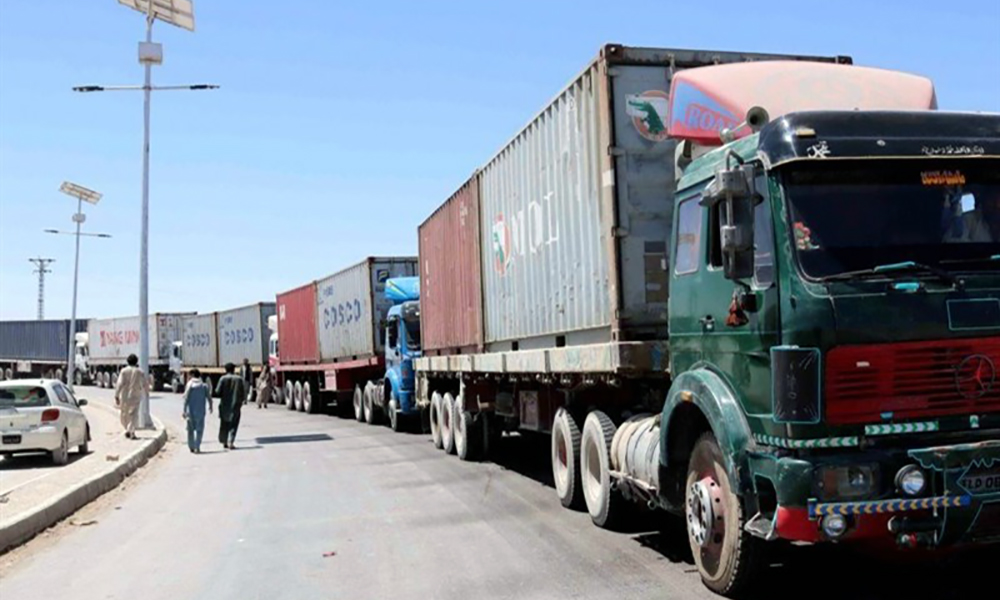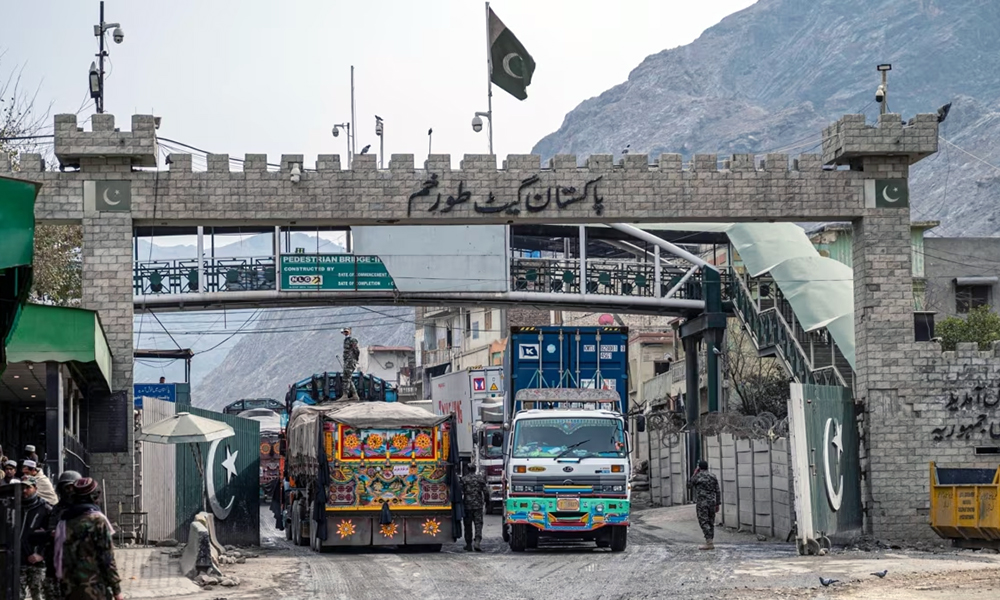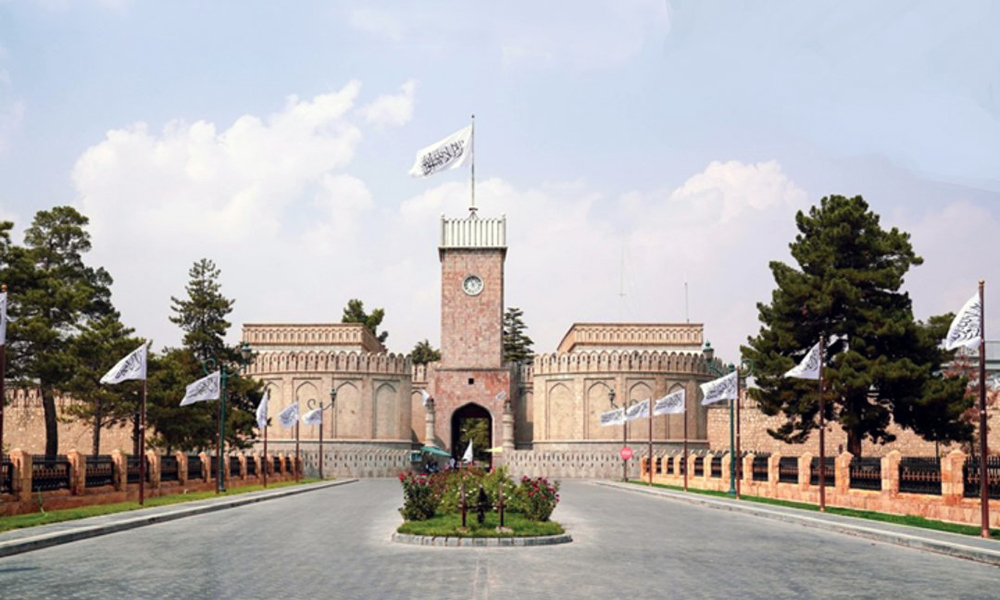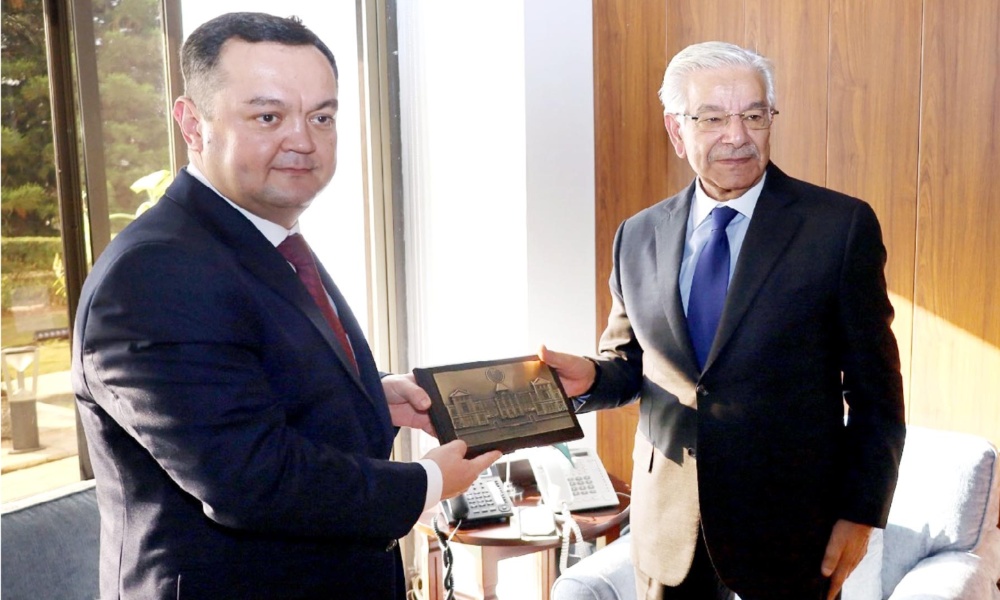Business
Iran’s non-oil exports to Afghanistan up 4%

The value of Iran’s non-oil exports to Afghanistan increased by four percent during the first seven months of the current Solar year, as compared to the same period of time in the past year, the Tehran Times reported.
According to Ruhollah Latifi, the spokesman of the International Relations and Trade Development Committee of Iran's House of Industry, Mining and Trade, Iran exported non-oil commodities worth $975 million to Afghanistan in the seven-month period of this year.
Latifi said Iran has a 35 percent share in Afghanistan’s import market, which is a considerable figure in bilateral trade ties.
Mohammad-Mehdi Javanmard-Ghassab, the economic adviser of the Iranian president’s special envoy on Afghanistan affairs, stated that the country is seeking to export technology, technical know-how as well as technical and engineering services to Afghanistan.
Increasing the production of Iranian products in Afghanistan is also on the agenda, he emphasized.
According to Mohammad Ghanadzadeh, the deputy head of Iran’s Trade Promotion Organization (TPO), the trade between Iran and Afghanistan has increased by 20 percent in the current Iranian calendar year (started on March 21).
Ghanadzadeh said Iran is ready to cooperate with Afghanistan in the country’s development and reconstruction projects, Tehran Times reported.
The Iranian and Afghan governments are taking some prominent measures to boost trade between the two countries.
In early March, Iran’s trade center and permanent exhibition of Iranian products was inaugurated in Kabul with the aim of developing trade relations between the two countries.
Then in late July, a joint exhibition of products made in Iran and Afghanistan was held in Herat.
More recently the two countries signed five memorandums of understanding (MOUs) on cooperation in different economic sectors.
The MOUs were signed in a ceremony on November 9 in the presence of Iranian Agriculture Minister Mohammad-Ali Nikbakht, President Raisi’s special envoy for Afghanistan Hassan Kazemi Qomi, and Deputy Prime Minister for Economic Affairs of the Islamic Emirate of Afghanistan Mullah Abdul Ghani Baradar.
The MOUs include the cooperation document of the Iran-Afghanistan Joint Economic Committee meeting, the document of the two sides’ Joint International Road Transport Cooperation Committee meeting, the MOU between Iran’s Civil Aviation Organization (CAO) and the Afghan side, the MOU between Iran’s Esfahan Steel Company and the Afghan side, and the MOU between Iran’s Secretariat of Free Trade and Special Economic Zones and the Afghan sides, Tehran Times reported.
Business
Daily truck clearances at Torkham drop from 400-500 to 5-10

Pakistan’s Sarhad Chamber of Commerce and Industry (SCCI) has said that daily truck clearances at Torkham crossing have declined from 400-500 to 5-10.
SCCI President Fazal Muqeem Khan said this at the signing ceremony of a memorandum of understanding (MoU) with the Pakistan-Afghanistan Joint Chamber of Commerce and Industry to promote bilateral trade and cooperation.
He said the volume of trade between Pakistan and Afghanistan had fallen from $3 billion to $1 billion annually.
Fazal Muqeem also highlighted the adverse impact of the 2% Infrastructure Development Cess (IDC) imposed by the Khyber-Pakhtunkhwa government on trade and transit.
Business
Turkish scholars, charity officials assess investment prospects in Afghanistan
Officials pledged to encourage Turkish investors to explore and capitalize on investment opportunities in Afghanistan

Afghanistan’s Acting Minister of Energy and Water, Mullah Abdul Latif Mansoor, met with a delegation of Turkish scholars and officials from the Adif Charity Foundation on Tuesday to discuss various political, religious, and social issues.
According to the Ministry of Energy and Water, Mullah Mansoor praised Adif’s humanitarian efforts in Afghanistan and highlighted the country’s ample resources for energy production.
He emphasized that Afghanistan currently offers a favorable environment for investment in all sectors, assuring the Turkish delegation of the Islamic Emirate’s commitment to ensuring the safety and security of investors and their assets.
In response, Adif officials pledged to encourage Turkish investors to explore and capitalize on investment opportunities in Afghanistan, signaling a potential boost in economic and developmental cooperation between the two nations.
Business
Uzbek envoy to Pakistan discusses Trans-Afghan Railway project with Pakistani minister
The Trans-Afghan Railway project is expected to serve as a powerful stimulus for trade and economic integration among numerous countries in the region

Regional connectivity projects including the Termez-Kabul railway line, the Trans-Afghan Railway, and the multimodal Belarus-Russia-Kazakhstan-Uzbekistan-Afghanistan-Pakistan transport corridor, are key to the region’s success, the Ambassador of Uzbekistan to Pakistan Alisher Tukhtayev said during a meeting with Pakistan’s Defense Minister Khawaja Asif on Friday.
The two officials discussed a range of issues as well as coordinating efforts to ensure stability and deepen economic integration in the region.
Asif however pointed out that Tashkent has become an important hub for regional cooperation, Pakistani media reported Monday.
Special focus was given to the implementation of the Trans-Afghan Railway project, which is expected to serve as a powerful stimulus for trade-economic integration to numerous countries.
The ambassador said the governments of Uzbekistan, Pakistan, and Afghanistan are actively cooperating in the implementation of joint economic and infrastructure projects and one of them is the construction of the Trans-Afghan Railway.
He said the “Termez-Kabul-Peshawar” railway project plays an important role in restoring ties of regional connectivity between Central and South Asia.
He added that once the project is launched, the volume of trade will increase significantly and shipping costs will decrease.
Tukhtayev said the railway connectivity will contribute hugely to regional stability and overall prosperity by aiding Afghanistan’s economic recovery.
He also said the project will facilitate the delivery of Uzbek goods to world markets through Pakistani ports and will open up a new route for Pakistan to export its products to Central Asian, and European markets.
According to him, the Trans-Afghan railway will be able to carry up to 20 million tons of cargo per year, and transportation costs will decrease by 30-35% and timing of deliveries will be cut from two weeks to three to four days.
He also stated that the international cooperation project on the development of the multimodal transport corridor Belarus-Russia-Kazakhstan-Uzbekistan-Afghanistan–Pakistan is being actively promoted.
[embed]https://youtu.be/2Osh4f_dA5Y[/embed]
-

 Latest News4 days ago
Latest News4 days agoAfghanistan seals T20I series victory over Zimbabwe
-

 World5 days ago
World5 days agoSyrian clerics in former Assad stronghold call for national unity, democracy
-

 Latest News4 days ago
Latest News4 days agoU.S. sentences Afghan man to 30 years in prison for narco-terrorism and witness tampering
-

 International Sports4 days ago
International Sports4 days agoMessi vs Ronaldo: A look at their market values over the years
-

 Latest News4 days ago
Latest News4 days agoInvestment in Afghanistan’s pharmaceutical sector reaches $300 million: Union
-

 Latest News5 days ago
Latest News5 days agoChinese, Tajik officials discuss Afghanistan
-

 Sport4 days ago
Sport4 days agoAfghanistan’s Gulbaddin Naib fined 15% of match fee for dissent
-

 Regional4 days ago
Regional4 days agoHezbollah chief says group lost its supply route through Syria

























